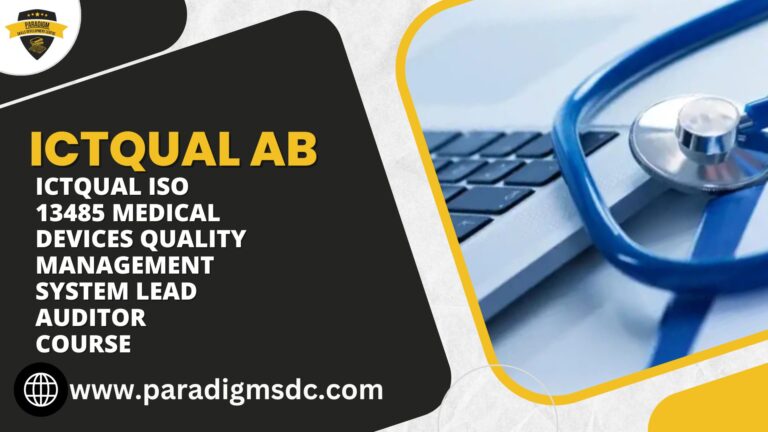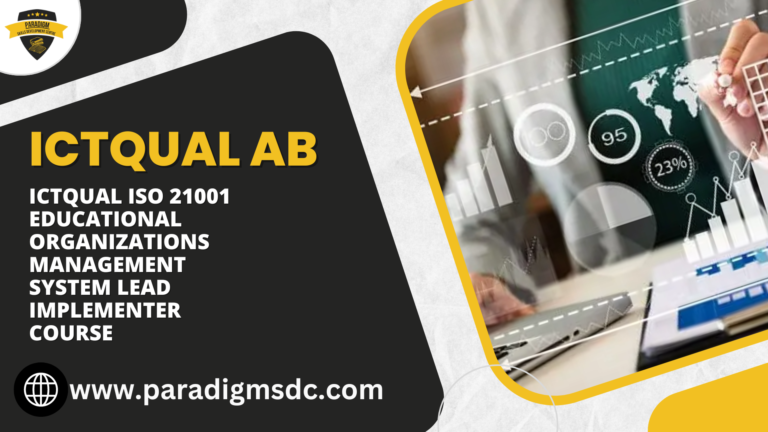Course Introduction
The ICTQual Level 3 Award in Revenue Cycle Management (RCM) in Healthcare is designed to equip learners with the essential skills and knowledge needed to oversee and optimize the financial performance of healthcare organizations. This course covers the end-to-end process of RCM, emphasizing the importance of accuracy, efficiency, and compliance in managing healthcare revenues.
Course Overview
This course combines theoretical learning with practical application to provide a holistic understanding of RCM. Participants will engage in online modules, interactive workshops, and real-world case studies, gaining valuable insights into the complexities of revenue cycle management. The curriculum is designed to be engaging and informative, ensuring that learners acquire both the knowledge and the hands-on experience needed to excel in their roles.
Course Study Units
- Introduction to Revenue Cycle Management (RCM)
- Healthcare Finance Fundamentals
- Medical Billing and Coding
- Compliance and Regulatory Requirements
- Revenue Cycle Processes and Workflow
- Healthcare Revenue Cycle Technologies
- Financial Reporting and Analysis
- Quality Improvement in Revenue Cycle Management
Learning Outcomes
Upon completing the ICTQual Level 3 Award in Revenue Cycle Management (RCM) in Healthcare, participants will be able to:
Introduction to Revenue Cycle Management (RCM)
- Understand the concept of the revenue cycle in healthcare.
- Identify key stages and processes within the revenue cycle.
- Recognize the significance of effective revenue cycle management for healthcare organizations.
- Explain the roles and responsibilities of stakeholders involved in revenue cycle processes.
- Outline strategies for optimizing revenue cycle performance and efficiency.
Healthcare Finance Fundamentals
- Explain basic principles of healthcare financial management.
- Understand budgeting processes and financial planning in healthcare organizations.
- Describe various healthcare reimbursement models and their implications.
- Analyze financial data to support decision-making in healthcare settings.
- Identify financial challenges and opportunities within the healthcare industry.
Medical Billing and Coding
- Describe different medical coding systems (ICD-10, CPT, HCPCS) and their purposes.
- Apply coding guidelines and conventions accurately.
- Demonstrate proficiency in medical billing processes, including claim submission and reimbursement.
- Identify common billing errors and methods for preventing them.
- Understand the importance of coding accuracy for revenue optimization and compliance.
Compliance and Regulatory Requirements
- Identify major healthcare regulations (HIPAA, HITECH Act, etc.) relevant to revenue cycle management.
- Explain compliance standards and ethical considerations in healthcare finance.
- Describe the impact of non-compliance on healthcare organizations.
- Implement strategies for ensuring compliance with regulatory requirements.
- Understand the role of auditing and monitoring in maintaining compliance.
Revenue Cycle Processes and Workflow
- Describe the workflow of revenue cycle processes from patient registration to claims processing.
- Identify key checkpoints for ensuring accurate charge capture and coding.
- Explain the importance of insurance verification and eligibility checks.
- Develop strategies for streamlining revenue cycle workflows and reducing inefficiencies.
- Understand denial management strategies and appeals processes.
Healthcare Revenue Cycle Technologies
- Identify common revenue cycle management software and electronic health records (EHR) systems.
- Explain the functions and features of practice management systems (PMS) in revenue cycle management.
- Demonstrate proficiency in using healthcare revenue cycle technologies for process optimization.
- Understand the integration of different systems to streamline revenue cycle workflows.
- Identify security and privacy considerations when working with healthcare technologies.
Financial Reporting and Analysis
- Generate financial reports relevant to revenue cycle performance and analysis.
- Interpret key performance indicators (KPIs) in healthcare finance.
- Analyze revenue trends, patterns, and variances.
- Use financial data to identify areas for improvement and strategic decision-making.
- Communicate financial insights effectively to stakeholders.
Quality Improvement in Revenue Cycle Management
- Identify opportunities for quality improvement within the revenue cycle.
- Implement strategies to reduce denials and improve collections.
- Utilize quality monitoring and auditing practices to maintain compliance and accuracy.
- Foster a culture of continuous improvement within the revenue cycle team.
- Evaluate the impact of quality improvement initiatives on revenue cycle performance.
Course Benefits
- Comprehensive Knowledge: Gain a thorough understanding of revenue cycle management in healthcare.
- Practical Skills: Develop essential skills through hands-on practice and real-world scenarios.
- Career Advancement: Enhance career prospects in healthcare finance and administration.
- Operational Efficiency: Contribute to improved operational efficiency and financial performance.
- Professional Confidence: Build confidence in managing and optimizing the revenue cycle.
Who Is This Course For?
The ICTQual Level 3 Award in Revenue Cycle Management (RCM) in Healthcare is ideal for:
- Healthcare administrators and managers involved in financial operations.
- Medical billing and coding professionals seeking to enhance their RCM skills.
- Financial analysts and accountants working in the healthcare sector.
- Healthcare consultants specializing in revenue cycle optimization.
- Students and trainees in healthcare administration and finance programs.
- Healthcare professionals looking to transition into financial management roles.
Future Progression
Upon completing the ICTQual Level 3 Award in Revenue Cycle Management (RCM) in Healthcare, participants can further their education and career development through:
- Advanced RCM Courses: Pursue higher-level qualifications and specialized training in RCM and healthcare finance.
- Professional Certifications: Obtain certifications in medical billing, coding, and healthcare financial management.
- Higher Education: Enroll in undergraduate or postgraduate programs in healthcare administration, finance, or business management.
- Specialized Training: Participate in training programs focusing on specific areas of RCM, such as compliance or data analytics.
- Leadership Roles: Progress to supervisory or managerial positions within healthcare organizations, overseeing RCM operations.
The ICTQual Level 3 Award in Revenue Cycle Management (RCM) in Healthcare is an essential step for professionals committed to excellence in healthcare finance. Equip yourself with the skills and knowledge to ensure financial precision and operational success, and elevate your career in the dynamic field of healthcare management.







